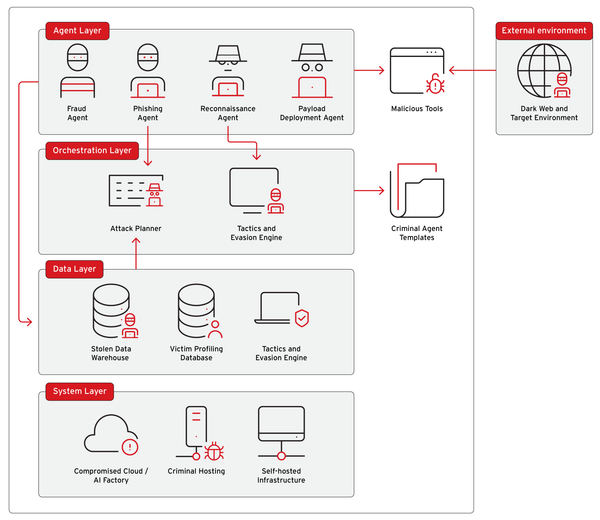The Hidden Digital Slavery Crisis: Inside Myanmar's Expanding Scam Empire

A Modern Tragedy Unfolding Along the Thai Border
Behind the meticulously manicured lawns and Silicon Valley-esque campus of KK Park lies one of the darkest chapters of modern human trafficking. This 520-acre complex along Myanmar's border with Thailand represents the epicenter of a multibillion-dollar criminal industry that has exploded in scale since Myanmar's military coup in 2021, trapping an estimated 100,000 people in conditions of modern slavery.
The numbers are staggering and growing. What began as isolated criminal operations has mushroomed into an industrial-scale fraud ecosystem that defrauded Americans alone of over $10 billion in 2024—a 66% increase from the previous year. This represents not just a cybercrime crisis, but a human rights catastrophe of unprecedented proportions.
The Explosive Growth of Digital Exploitation
Recent drone imagery and analysis reveal that the number of Myanmar scam centers on the Thai border has more than doubled since Myanmar's military seized power in 2021, expanding from 11 to 27 facilities. These compounds have grown by an average of 5.5 hectares per month, with construction continuing to this day.
The scale of human suffering is almost incomprehensible. Thai government estimates suggest that 100,000 people are enslaved in Myanmar's scam compounds, while approximately 150,000 victims are trapped in similar facilities across Cambodia. Combined with operations in Laos, over 305,000 people are working as scammers in these three countries alone, generating $39 billion in stolen funds annually.
The Human Cost Behind the Screens
The stories emerging from survivors paint a picture of systematic brutality. Mateo, a Filipino worker who spent six months trapped inside KK Park, described a daily horror of meeting impossible targets while under constant armed guard. Each day he was required to message hundreds of older American men on social media sites, building their trust until they shared personal contact information. If he failed to meet targets, he would be punished with a stun gun or with grueling physical penalties in the searing heat outside.
Survivor testimonies recorded by humanitarian monitors detail torture for non-performance, including beatings with rods, electric shocks, and even threats of organ harvesting. Victims are deprived of fundamental rights, food is scarce, outside contact is forbidden, and they remain under constant guard.
The recruitment process is deceptively simple yet devastatingly effective. Criminal organizations lure vulnerable people from across the region—and increasingly from as far away as Africa and South America—with false promises of legitimate employment. In January 2025, a 17-year-old Japanese high school student was trafficked from Thailand to Myanmar after being promised a high-paying job through an online video game contact.
Technology as Both Weapon and Lifeline for Criminals
One of the most concerning developments has been the systematic adoption of advanced satellite technology to circumvent international pressure. When Thai authorities cut electricity, fuel, and internet supply to parts of Myanmar hosting scam compounds, criminal organizations rapidly pivoted to Elon Musk's Starlink satellite internet service. Between November 2024 and February 2025, mobile phone connection data showed over 40,000 logins to Starlink from known scam centers.
Drone footage reveals white squares visible on compound rooftops—likely satellite internet receivers installed to maintain operations after Thailand severed cross-border utilities. These allow the facilities to stay online and continue targeting victims globally.
The scale of this technological adaptation is remarkable. Thai law enforcement has repeatedly seized smuggled Starlink terminals, including 38 devices in March 2025 alone. Photos from the Tai Chang compound show dozens of white Starlink satellite dishes on a single rooftop, while multiple compounds across the Myanmar-Thailand border region are now confirmed to be using the technology.
Vendors are now openly advertising Starlink access as a "solution for online scam operators" on Telegram-based markets, highlighting how quickly criminal networks adapt to technological solutions.
The Economics of Exploitation
The financial scope of these operations defies comprehension. Criminal groups operating cyber scam centers in Southeast Asia generate more than $43.8 billion annually, with some estimates suggesting the combined revenues of Southeast Asian organized crime networks reach $2 to $3 trillion per year. The UN Office on Drugs and Crime estimates financial losses between $18 billion and $37 billion from scams targeting victims in East and Southeast Asia in 2023 alone.
For perspective, these profits likely exceed $43.8 billion a year—nearly 40% of the combined formal GDP of Laos, Cambodia, and Myanmar, with a significant share flowing to Myanmar's military junta and ruling elites in Cambodia and Laos.
The money doesn't stop at fraud. A trafficking expert noted that funds from fraud centers have gone toward drug production and trafficking, arms trafficking, sex trafficking, and exotic pet trafficking. These illicit funds have even been found to finance militias affiliated with Myanmar's military junta, indirectly supporting a regime that has committed crimes against humanity and war crimes.
Myanmar's Military: Partner in Crime
The expansion of scam centers isn't happening in a vacuum—it's actively facilitated by Myanmar's ruling military junta. Myanmar's military junta has allowed the spread of scam centers as these criminal enterprises have become an essential part of the country's conflict economy since the coup, helping it rise to the top of the global list of countries harboring organized crime.
According to analysis by the Australian Strategic Policy Institute, Myanmar's military, which has lost huge swathes of territory since the coup and is struggling to retain its grip on power, cannot take meaningful measures against the scam compounds without endangering its precarious relations with crucial armed militias who profit from them.
The symbiotic relationship is clear. The Karen National Army (KNA), which partnered with Myanmar's military to control southeastern Karen State, now profits from cyber scam centers by trafficking people into the area and selling utilities to scam operators. One infamous compound, Yatai New City in Shwe Kokko, serves as a purported $15-billion mega development that actually functions as a front for cyber-scam centers and illegal casinos.
Recent Rescue Efforts: Progress and Limitations
The international community has not remained idle. In early 2025, a major crackdown coordinated among Thailand, Myanmar, and China led to over 7,000 people being held in Myanmar border towns awaiting repatriation. In February alone, 260 people from 20 countries were freed and handed over to Thai authorities.
Thai officials identified 258 of these freed individuals as human trafficking victims under Thailand's National Referral Mechanism, with International Justice Mission (IJM) providing support for victim identification and repatriation efforts.
However, these rescue operations represent only a fraction of those trapped. Experts say the 7,000 people freed earlier this year are just a drop in the ocean compared to the estimated 100,000 people held inside Myanmar scam centers along the countries' shared border.
The armed groups conducting the crackdowns have themselves been accused of helping run scam compounds. The head of the Kayin Border Guard Force has been sanctioned by the European Union and United Kingdom for profiting from scam compounds and human trafficking, respectively.
International Response and Sanctions
The United States has taken increasingly aggressive action against the networks. In September 2025, the U.S. Treasury Department implemented sanctions against 19 companies and individuals in Myanmar and Cambodia involved in the scam industry, including nine targets operating in Myanmar's notorious Shwe Kokko city and 10 in Cambodia.
These designations followed previous Treasury actions, including May 2025 sanctions against the Karen National Army as a transnational criminal organization, along with its leader and two sons for their roles in facilitating cyber scams, human trafficking, and cross-border smuggling.
The scale of American losses has prompted urgent action. "In 2024, unsuspecting Americans lost over $10 billion due to Southeast Asia-based scams," stated Under Secretary of the Treasury for Terrorism and Financial Intelligence John K. Hurley.
The Global Expansion Risk
Perhaps most concerning is evidence that this model is expanding beyond Southeast Asia. The UN Office on Drugs and Crime has noted efforts by syndicates to globalize, expanding beyond East and Southeast Asia, looking for new populations to victimize and weaker legal frameworks to exploit. In August 2024, Interpol announced arrests of more than 1,200 cyber and financial criminals in Africa, many of which were foreign nationals from Southeast Asia conducting similar operations.
Amy Miller from Acts of Mercy International warns: "To me, that's such ignorance, in not understanding the scale of this and where it will grow to," adding that there are already signs of similar schemes emerging in countries such as Sri Lanka and Nigeria.
The UN Office on Drugs and Crime has documented a rise in AI-driven crimes involving deepfakes, with more than a 600% increase in mentions of deepfake-related content targeting criminal groups in Southeast Asia in the first half of 2024.
The Technology Challenge
The Starlink situation illustrates a broader challenge in combating these operations. Despite requests from a U.S. district attorney and Thai politicians for SpaceX to voluntarily disable Starlink internet access to specific scam compounds, the company has not responded to these appeals.
The Stimson Center has called on Starlink to implement stricter "Know Your Customer" policies and to monitor for suspicious activity such as multiple logins from known scam regions or unauthorized resales of hardware. However, enforcement of terms-of-service violations isn't SpaceX's forte, and the company's marketing as a global telecommunications solution conflicts with rigorous geographic restrictions.
A Systemic Crisis Requiring Systemic Solutions
The Myanmar scam center crisis represents a convergence of political instability, technological advancement, and criminal opportunism that has created a humanitarian disaster of enormous proportions. As one analyst noted, "The case of Myanmar is a telling example of how authoritarianism, economic crisis, and digital innovation are able to converge and form new exploitation mechanisms never witnessed."
The friend of survivor Mateo perhaps captured the essence of the crisis most clearly: "For them, money is more important than human life. They don't care if they tread on others—what matters to them is money." It feels, he said, "like all the evil in the world" exists inside those compounds.
As these operations continue to expand and evolve, the international response must match the scope and sophistication of the threat. The decisions made in 2025 will determine whether Myanmar becomes a cautionary tale that spurred global action, or a template that criminal organizations replicate across the developing world.
The victims trapped behind the walls of compounds like KK Park are counting on the international community to act with the urgency their situation demands. Time is running out, and the scale of this crisis continues to grow with each passing month.
This analysis is based on reporting from The Guardian, NPR, International Justice Mission, the UN Office on Drugs and Crime, U.S. Treasury Department, and other international sources documenting the ongoing crisis in Myanmar's scam centers as of September 2025.





